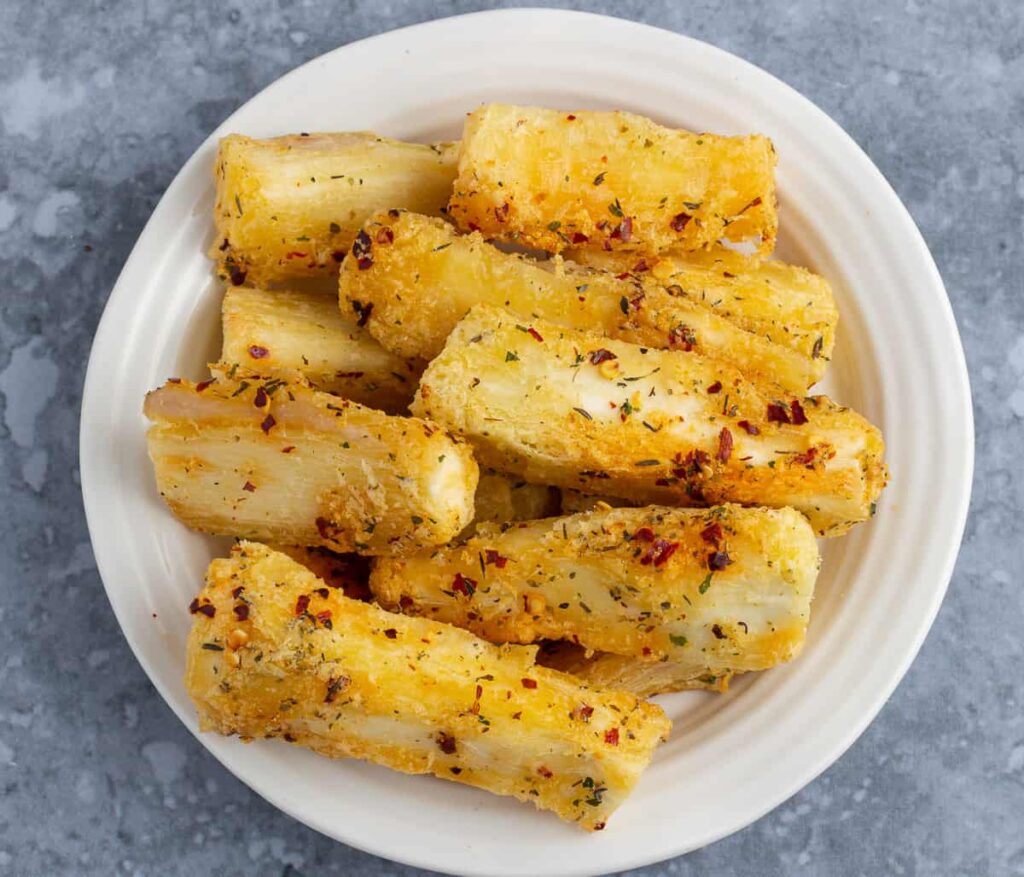For many Kenyans living in the rural parts of the country, cassava is usually one of the staples.
Especially in western Kenya and the coastal region where its widely grown.
However, many who reside in the cities rarely consider this amazing root as part of their diet.
Cassava, whose scientific name is Manihot esculenta, is a starchy root vegetable with a long history of being a dietary staple in many countries around the world, and for good reason.
There are many health benefits associated with eating cassava. Take these ten for instance:
1. Great source of Protein
Cassava is a good source of plant-based protein, making it a suitable choice for vegetarians and vegans.
Plant-based proteins have been shown to reduce the risk of cardiovascular diseases and some types of cancers.
It has also been shown to be beneficial for weight management.
2. Great source of vitamins and minerals
It is a rich source of important vitamins and minerals, including vitamin C, potassium, and magnesium.
While vitamin C is basically an antioxidant that helps protect your cells against molecules formed in the body through exposure to things like tobacco and radiation, potassium and magnesium are mainly concerned with heart function and muscle function respectively.
These nutrients are essential for maintaining good health and can help to support a healthy immune system.
3. Gluten free
Its being gluten-free makes it a suitable choice for those with celiac disease or gluten intolerance.
Individuals suffering from celiac disease usually have an immune reaction that is triggered by eating gluten, which is a protein found in many grains.
4. Source of resistant starch
It is also a good source of resistant starch, which is a type of fiber that is not easily digested.
Resistant starch has been shown to have a great number of health benefits for the human body, including improved gut health and blood sugar control.
5. Low in fat
It is a low-fat food, making it a good choice for people looking to manage their weight or lower their risk of heart disease.
Low-fat diets also help reduce the risk of obesity.
6. Source of antioxidant
It is a great source of antioxidants, which can help to protect the body against free radical damage and greatly reduce the risk of chronic diseases such as cancer and heart disease.
Free radicals are simply unstable molecules formed during normal cell metabolism.
When these molecules build up in the cell, they are likely to cause damage to other molecules including the DNA.
7. Low glycemic
It has a low glycemic index. This basically means that it does not cause a rapid increase in blood sugar levels.
This also makes cassava a good choice for people suffering from diabetes or at risk of developing the condition.
8. Anti-inflammatory
It has been shown to possess anti-inflammatory properties, which may be beneficial for individuals with conditions such as arthritis or inflammatory bowel disease.
9. A good source of carbohydrates
It is a good source of carbohydrates, which are the body’s main source of energy. It is also high in fiber, which can help to keep you feeling full and satisfied.
Foods rich in carbohydrates provide energy, store energy and also build macromolecules.

10. A flexible meal
It is easy to incorporate cassava into a variety of dishes. This makes this amazing food a versatile and convenient addition to any diet and meal.
In addition, cassava can be cooked and eaten in a variety of ways, including boiled, baked, or fried.
Conclusion
People should realize that cassava is a highly nutritious and delicious food that should be enjoyed as part of a healthy diet. These are just but some of its benefits.
The versatility and numerous health benefits of cassava make it a great choice for any individual looking to improve not just their health but overall well-being.
A cassava diet can additionally be very beneficial for young children who are still growing.
